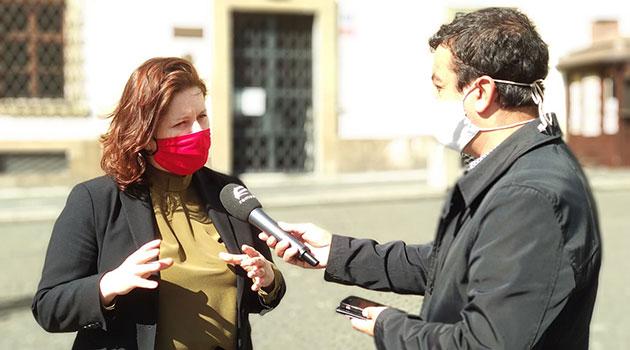Czech Labor Minister tells ROMEA TV the crucial priority is to prevent mass unemployment because of COVID-19

ROMEA TV has interviewed Czech Labor and Social Affairs Minister Jana Maláčová about what will happen with people who work on short-term contracts and other important matters associated with the Government measures taken during the COVID-19 pandemic. Earlier this week the “antivirus” was launched for the economic side of this problem.
What will the Government measures mean? When and how will employers be receiving that money from the state?
Companies that have been affected by the imposed restrictions and that are applying for relief for their short-term contractors would be able to receive contributions from the state for wages within several days, according to the minister. Applications for that money can be filed online with the Labor Office.
As of yesterday, employers could begin applying for the exact amounts of money they need. The minister said the crucial priority currently is to prevent mass unemployment.
The money can reach employers rapidly, according to the minister. “We have maximally simplified it, it’s all actually based on happening as fast as possible. The speed will develop based on two factors. The first is how many companies apply – that’s something that probably nobody can influence. We have calculated what is likely, but we’ll see whether our estimates bear out. The second is how correctly and truthfully employers will complete the applications. If they make mistakes, we’ll cancel their applications and return them – they will have to complete them again, and that would make the process a protracted one,” she told ROMEA TV.
Any firm can request the money, even those with few employees – the main criterion is that it be a company in a waged sector and that its activity not be covered by other funding sources, such as EU or state subsidies. “The conditions must be met, which means the firms should not have any work for their employees and that fact should be based on the so-called barriers caused by the coronavirus epidemic,” she said.
The aid should range from between 60 to 80 % of “super-gross” wages, i.e., including the value of the owner’s contributions to health insurance and social insurance. The minister is also planning aid for people reliant on income from short-term contracts.
The Government will decide this week about expanding the payment of damages for pain and suffering. It was scheduled to meet Monday to discuss direct contributions to those who work on short-term contracts.
“I believe that for those persons, the process should happen similarly to those in the self-employed regime,” the minister told ROMEA TV. If her bill is approved, then people who were already living on welfare benefits during the first quarter of this year will not be required to visit the Labor Office in person in order to undergo the complicated process of documenting their eligibility.
Only those making new claims for welfare benefits will be required to document their eligibility if the bill passes. The minister also wants to relieve the administrative burden on social firms and simplify bureaucracy in their case.
